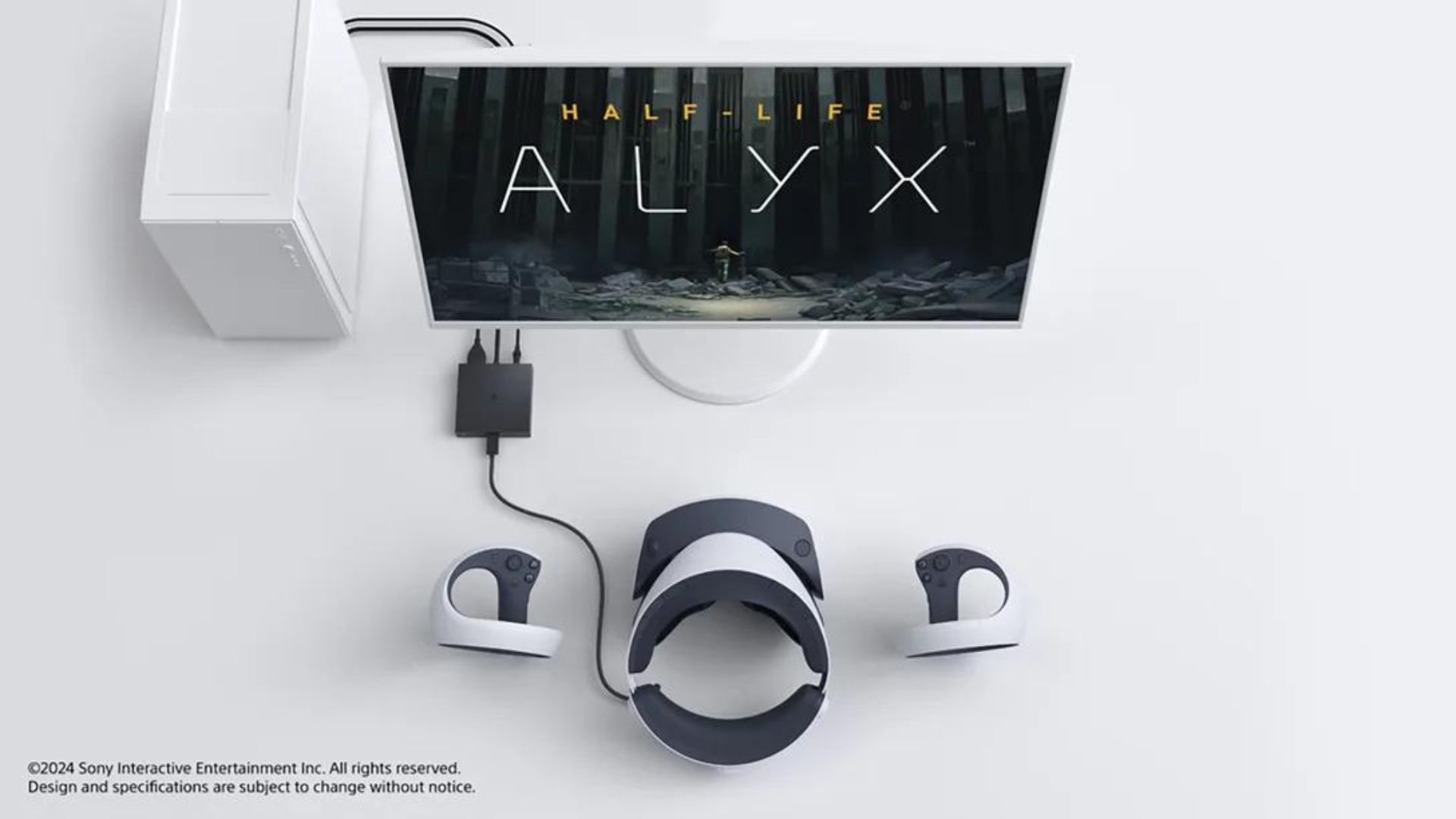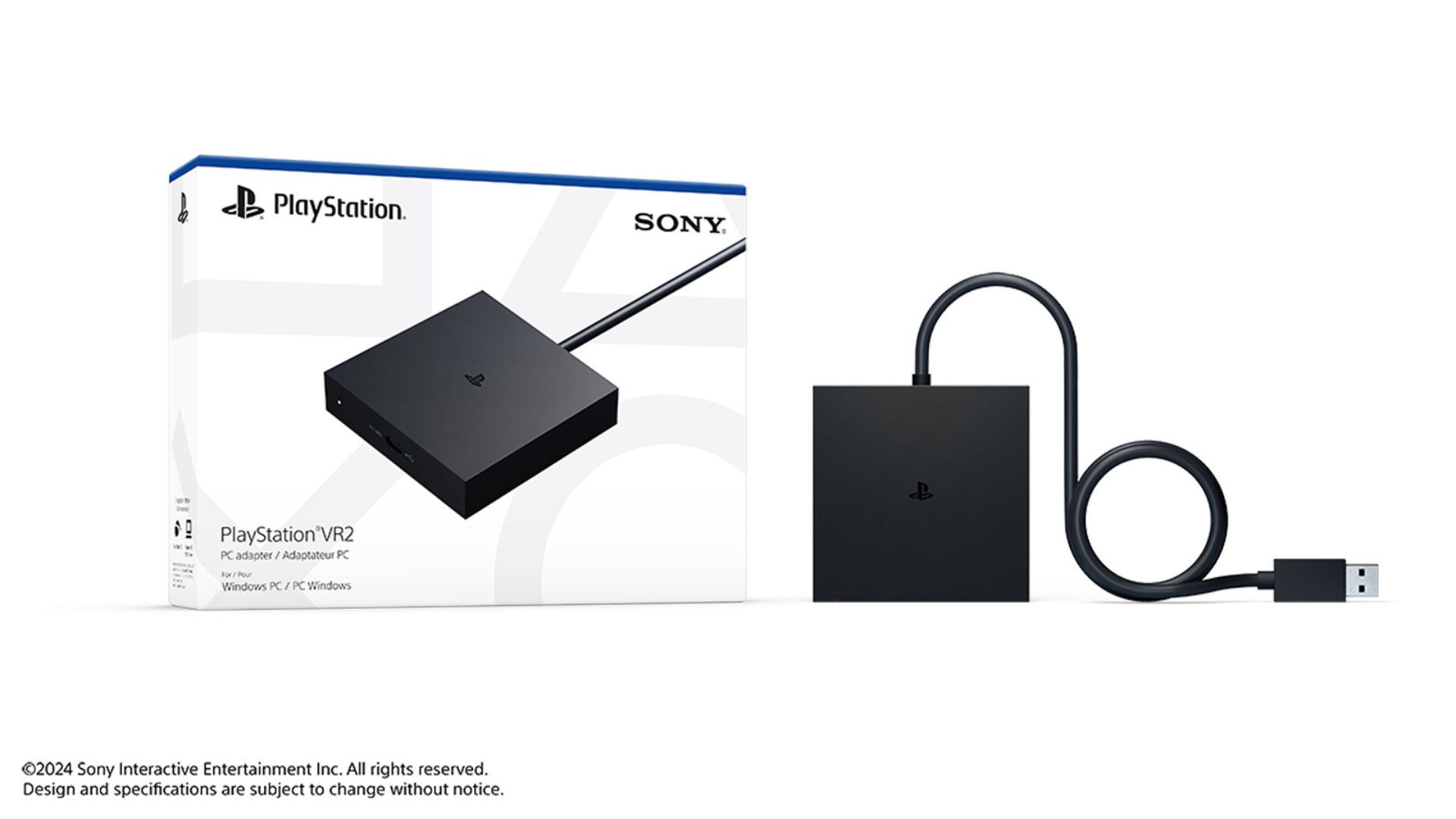
If you've been trying everything in your power to connect your PSVR 2 up to a gaming PC so you can play the likes of Half-Life Alyx or Blade and Sorcery, you're in luck. PSVR 2 is getting full PC support come August 7, but the only downside is that you'll need to purchase a small adapter for the headset to speak to your computer.
We got confirmation that PSVR 2, which we deem the best VR headset, was getting PC support back in February, and rumors last week pre-emptively revealed that it won't be as simple as plugging your headset in and launching Steam VR.
Using something that resembles one of the best capture cards, you'll need to buy a newly confirmed PlayStation VR2 PC Adapter, which will set you back an estimated price of $59.99 / £49.99. You'll also need a DisplayPort 1.4 cable, which won't be a big surprise for anyone who's dabbled in PC VR gaming before.
The PlayStation VR2 PC adapter launches August 7, letting players expand their game library with thousands of SteamVR titles. https://t.co/czluXvqmKk pic.twitter.com/8VkeEoQx1cJune 3, 2024
Luckily, setting the headset up to work with a gaming rig doesn't seem too complicated - you plug the device into the PC adapter via the USB-C cable, run a DisplayPort cable into your graphics card, and run the adapter's USB cable into a free slot on your PC. As some of us expected, you'll also need to download a PSVR 2 application before launching Steam VR to play games.
Interestingly, we now know the minimum PC specs required for PSVR 2 to work on a PC. You'll need to be running Windows 10 or 11, an Intel Core i5-7600 / AMD Ryzen 3 3100, 8GB of RAM, and at least a Nvidia GeForce GTX 1650, or an AMD Radeon RX 5500XT. While those are minimum recommendations, the PlayStation Blog post that revealed all of this information did say that an RTX 3060 or AMD Radeon RX 6600XT or newer equivalents are suggested for the best results.
Similarly, I'm a bit surprised that only 8GB of memory is all Sony says is required. As someone who reviews the best RAM for gaming, I'd suggest at least 16GB for any gaming activity these days. As VR can be particularly intensive on your memory though, 32GB is never a bad shout.

As suspected, there are a few feature drawbacks to using PSVR 2 on a PC or gaming laptop compared to your PS5. HDR, headband vibration, eye tracking, adaptive triggers, and haptic feedback (that isn't rumble) won't work.
Strangely though, foveated rendering will work (without eye-tracking) and 3D audio in supported games will go unaffected. The headset's more physical features will also carry over, including the 4K resolution OLED display (per eye), 110-degree FOC, passthrough cameras, and capacitive finger touch detectors on the Sense controllers.
If you've been holding off on buying a PSVR 2 so far, your best chance to get your hands on it is right now. Thanks to the Days of Play sale, Sony has knocked $100/£100 off the premium headset, as you'll see from the deal information below.
Steam support for PSVR 2 will be a massive win for PC gamers, as well as anyone on PS5 who's been miffed by the lack of games for the device. Steam VR not only grants access to some of the best VR titles ever made that don't appear on the PlayStation store, but it also has plenty of free-to-play experiences that mean the headset won't gather quite as much dust between uses.
For PC gamers, the PSVR 2 has just become an extremely alluring product. It's been ages since we got a dedicated PC VR headset from a big brand like this, and even longer since we got one that cost under $1,000. PSVR 2 has better specs than the likes of the HTC Vive Pro 2 and will be able to harness better power for PC games than the Meta Quest 3 thanks to its display prowess.
The PC adapter for PSVR 2 doesn't seem to be available for pre-order just yet, but the PlayStation Blog claims it will be listed on the PlayStation Direct store, as well as select retailers.
Sticking with flat-screen gaming for now? Check out the best gaming TVs, the best gaming handheld, and the best gaming monitors.







